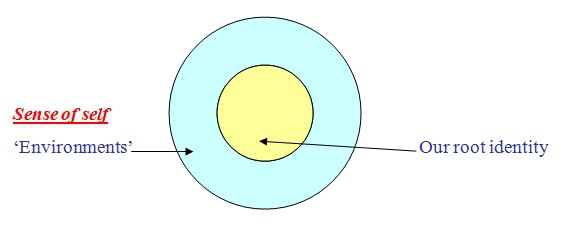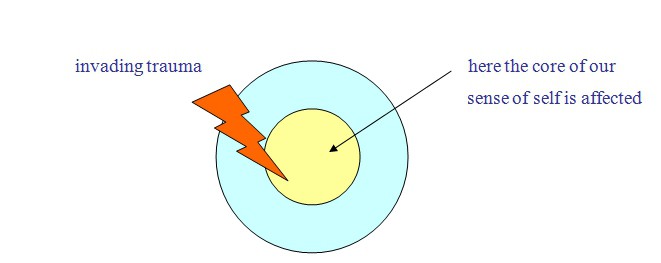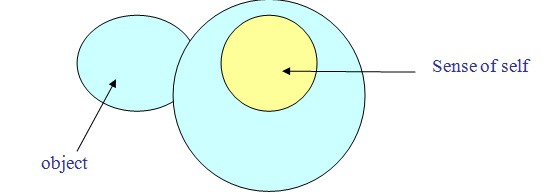What is the difference between a trauma and a samadhi?
Perhaps we can begin by drawing a diagram representing the self and some basic environments:
(i) Our Sense of Self
(ii) The Action of Stress on our Sense of Self
Considering TRAUMA first we can define it in a basic way by saying it is a STRESS on our environment. In its milder forms it pushes our sense of self back, invading our identity, imposing itself. When the stress is removed, we go back to our original self.
(iii) The Action of Trauma on our Sense of Self
TRAUMA on the other hand takes us beyond our limit of return, rather like stretching an object past its elastic limit. It invades our sense of self in a much more profound way
If the trauma goes deep enough our sense of self can disintegrate profoundly and can result in psychoses / mental illness i.e. when our inner core, or our subconscious self becomes disrupted.
From a more spiritual viewpoint, if we consider our identity to be a specific blend of the 7 rays, the vehicle for this energy to pass through becomes disrupted and our ‘personality’ is lost. Those suffering this amount of trauma can also pick up emotions /mental patterns of others and their environments as their ‘aura’ affectively breaks down.
(iv) The Effect of a Samadhi on our Sense of Self
A SAMADHI is where our identity ‘changes’ to incorporate the object. We still have a sense of self though, even though we see no distinction between the object of samadhi and ourselves. This can be shown as in the diagram below:
The principles of Tao can be applied to these two processes i.e. yin and yang. With samadhi, the yang process is the concentration that is needed to become one with the object, a candle for example. With a trauma, the yang process belongs to the object not the subject.
Further, with samadhi as all the concentration goes with the object a space is created within our identity, a yin-ness, for the samadhi to occur.




